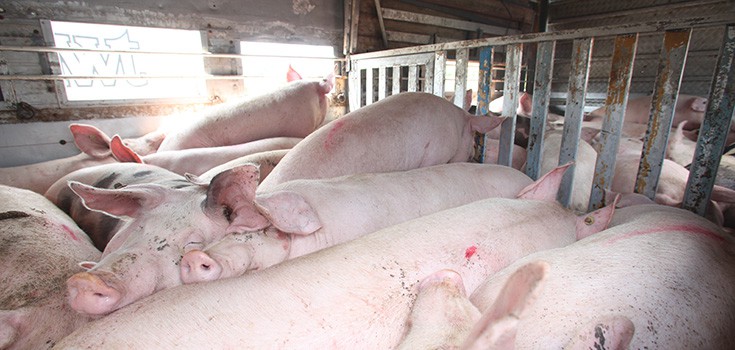Scientific Paper Argues Against Factory Farms “Feeding the World”

The case for small-scale, organic farming is still alive. Lest we yield to cynicism and the belief that Monsanto has managed to buy the professional opinions of every policymaker and scientist in America, a group of researchers led by a distinguished soil expert has published a paper urging the US to rethink its current alliance with Big Ag.
In its condensed form in the magazine Science (you can find the extended version here as published by the National Research Council), lead author John P. Reganold from Washington State University claims that the US’s current ag-research policy is flawed and not the vehicle needed to feed the world.
Instead, it “[masks] market, social, and environmental factors associated with conventional production systems,” and is “narrowly focused on productivity and efficiency,” even to the detriment of the public and the environment.
The Dangers of Industrial Agriculture
The sort of detriment we’re talking about here, of course, is the degradation of farmland wrested of their natural nutrients through perpetual growth and harvest of a limited number of genetically modified crops, herbicide usage, and associated environmental devastation like water pollution, resistant insects, and superweeds.
Effects on consumers and farmers are no better, as consumption of genetically modified foods—and herbicide residue—are tied to organ disruption, tumors, obesity and metabolic disruption, sterility, reproductive problems, and birth defects.
This is not even to mention the dangers associated with factory farms (on people, the environment, and animals), as instituted by Big Ag, which produce 100 times more waste than the entire U.S. population.
Despite the uncertainty surrounding GMOs, Monsanto investor Bill Gates has repeatedly claimed that the genetically modified creations are the remedy to starvation across the globe.
The Call for Organic Farming
Reganold, however, disagrees with Gates. His team recommends “organic farming, alternative livestock production (e.g., grass-fed), mixed crop and livestock systems, and perennial grains.”
Reganold’s voice is joined by a chorus of like-minded scientists, like Olivier De Schutter, the UN’s special rapporteur on food, who reviewed recent scientific literature and concluded that Big Ag wasn’t the silver bullet it claimed to be. (You can read his report here.) “Small-scale farmers,” De Schutter proclaims, “can double food production within 10 years in critical regions by using ecological methods.”
The UN posted another report in 2011 pushing for organic food production and other “low-input ag techniques.” Years still earlier, the International Assessment of Agricultural Knowledge, Science, and Technology for Development (IAASTD) released a study involving 400 scientists refuting industrial agriculture’s claim that it could feed the world.
Instead, it is resilient communities focused on health through sustainable-ag techniques—what the scientists in the IAASTD study call “agroecology”—that will answer the cries for an end to global starvation.
Additional Source:

The innate truth of this is so compelling that it will need a continuous output of propaganda from industrial ag to maintain a semblance of their claims to 'feed the world' in the face of increasing evidence that the opposite is in fact the case. How long industry will be able to keep up the pretence, and fool people like Bill Gates, is the question; let's hope it'll be 'over' quickly! Imagine how the world might benefit from ALL that money and effort going into recovering land health for organic agriculture to replace industrial ag wastelands!